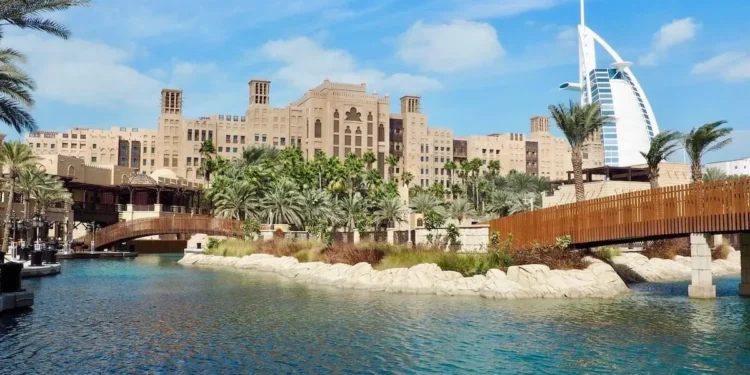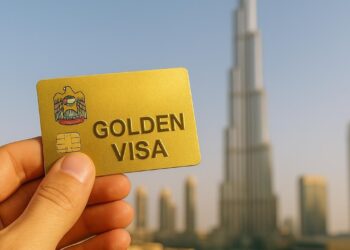Dubai, known for its luxury lifestyle and futuristic skyline, often raises one big question for expats and tourists alike:
“How expensive is it to live in Dubai?”
While it’s true that Dubai can be lavish, the cost of living varies widely based on your lifestyle, location, and spending habits. In this 2025 guide, we break down the average costs for rent, food, transportation, utilities, healthcare, education, and more, so you can plan your move, travel, or job opportunity wisely.
Table of Contents
-
Overview: Is Dubai Expensive in 2025?
-
Average Monthly Expenses for a Single Person vs Family
-
Housing & Rent Costs
-
Food & Grocery Expenses
-
Transport Costs (Public + Private)
-
Utilities & Internet
-
Healthcare & Insurance
-
Education Costs (for families)
-
Entertainment & Lifestyle
-
Tips to Manage Expenses
-
Final Thoughts
1. Overview: Is Dubai Expensive in 2025?
Dubai offers a range of options — from affordable studio apartments to ultra-luxury penthouses, from budget eateries to Michelin-star restaurants. It all depends on your choices.
-
For expats earning a mid-to-high salary, Dubai is manageable and enjoyable.
-
For tourists, it can be budget-friendly with smart planning.
-
For families, expenses vary depending on school fees and housing.
2. Average Monthly Cost: Single vs Family
| Category | Single Person (AED) | Family of 4 (AED) |
|---|---|---|
| Rent (1 BHK / 3 BHK) | 4,500 – 9,000 | 8,000 – 15,000 |
| Food & Groceries | 1,000 – 1,500 | 2,500 – 3,500 |
| Transport | 300 – 800 | 700 – 1,200 |
| Utilities & Internet | 500 – 800 | 800 – 1,200 |
| Education | N/A | 2,500 – 6,000 |
| Entertainment | 300 – 800 | 700 – 1,500 |
| Total (Est.) | 6,500 – 13,000 | 15,000 – 28,000 |
💡 Note: AED 1 = ~0.27 USD (2025 estimate)
3. Housing & Rent Costs in 2025
Rent is the largest expense in Dubai. Prices vary by area, property type, and whether it’s furnished or not.
Average Monthly Rent:
| Area | Studio | 1 BHK | 3 BHK (Family) |
|---|---|---|---|
| Jumeirah Village Circle | 3,000 | 4,500 | 8,000 |
| Al Nahda / Deira | 2,500 | 4,000 | 7,500 |
| Dubai Marina / Downtown | 5,000 | 8,500 | 15,000 |
| Mirdif / Al Barsha | 3,500 | 5,500 | 10,000 |
Tips:
-
Look for shared accommodations if you’re on a budget.
-
Many landlords accept monthly payments now instead of 1-2 cheques.
4. Food & Grocery Expenses
Dubai offers a wide range of dining — from budget meals under AED 15 to fine dining experiences over AED 500 per person.
Eating Out:
-
Budget restaurant: AED 15–25 per meal
-
Mid-range meal for two: AED 120–200
-
Coffee (Starbucks-style): AED 18–22
-
Shawarma / Karak chai: AED 5–10
Groceries (Monthly):
| Item | Avg. Price |
|---|---|
| 1L Milk | AED 6 – 8 |
| Bread (loaf) | AED 4 – 6 |
| 1kg Rice | AED 7 – 12 |
| Chicken (1 kg) | AED 15 – 22 |
| Eggs (12) | AED 10 – 14 |
| Fruits & Veg (1 kg) | AED 6 – 12 |
Popular supermarkets: Carrefour, Lulu, Union Coop, Choithrams
5. Transportation Costs
You can travel across Dubai easily using metro, buses, taxis, or private vehicles.
Public Transport:
-
Nol card recharge (monthly): AED 270 – 350
-
Single metro/bus ride: AED 3 – 7.5
-
Taxi start fare: AED 12 (day) / AED 15 (night)
Private Car:
-
Petrol (per liter): AED 3.20 – 3.50
-
Monthly fuel expense: AED 300 – 600
-
Salik (toll): AED 4 per gate
-
Car insurance: AED 1,200 – 2,500/year
-
Parking in malls: Mostly free, but paid in busy areas
💡 Uber and Careem are available but slightly more expensive than taxis.
6. Utilities & Internet
Utilities are managed by DEWA (Dubai Electricity and Water Authority). Cooling may be through district cooling companies like Empower.
| Utility | Monthly Cost (1 BHK) |
|---|---|
| Electricity & Water | AED 300 – 500 |
| Air Conditioning (Empower) | AED 200 – 600 |
| Internet (Du / Etisalat) | AED 350 – 500 |
| Mobile Plan | AED 125 – 250 |
7. Healthcare & Insurance
Health insurance is mandatory in Dubai. Many employers provide it, but if not, you’ll need to buy a private plan.
Average Costs:
-
GP visit (without insurance): AED 200 – 400
-
Specialist consultation: AED 400 – 700
-
Basic private insurance plan: AED 600 – 1,200/year (for expats)
Top hospitals: Mediclinic, Aster, NMC, American Hospital
8. Education Costs (for Families)
Education is one of the highest recurring costs for families in Dubai.
| School Type | Annual Fees (per child) |
|---|---|
| British Curriculum | AED 25,000 – 90,000 |
| Indian Curriculum (CBSE) | AED 8,000 – 30,000 |
| American Curriculum | AED 35,000 – 80,000 |
| International Baccalaureate (IB) | AED 40,000 – 100,000+ |
💡 Uniforms, books, and bus fees are extra.
9. Entertainment & Lifestyle
Dubai is full of activities — both free and premium.
| Activity | Cost (AED) |
|---|---|
| Cinema ticket | AED 35 – 60 |
| Theme park (Dubai Parks, IMG) | AED 150 – 300 |
| Gym membership (monthly) | AED 150 – 500 |
| Desert Safari (with dinner) | AED 150 – 300 |
| Brunch (Friday/Saturday) | AED 120 – 400 |
Free attractions include: Dubai Fountain, Beaches, Old Souk, Al Seef
10. Tips to Manage Expenses in Dubai
✅ Use discount apps like The Entertainer, Zomato Pro, and Smiles
✅ Shop at budget markets like Lulu or Union Coop
✅ Choose areas like Al Nahda, Deira, International City for affordable rent
✅ Use metro + Nol card instead of taxis
✅ Cook at home to cut food costs
✅ Explore free public attractions regularly
11. Final Thoughts
Dubai offers a comfortable lifestyle if you manage your budget wisely. While it’s not the cheapest city, it’s definitely affordable — especially if you compare it to cities like London, New York, or Singapore. Whether you’re a single expat, tourist, or relocating with your family, understanding the cost of living in Dubai in 2025 helps you plan better and avoid surprises.
From rent to food, and education to healthcare — smart choices and planning make all the difference!






